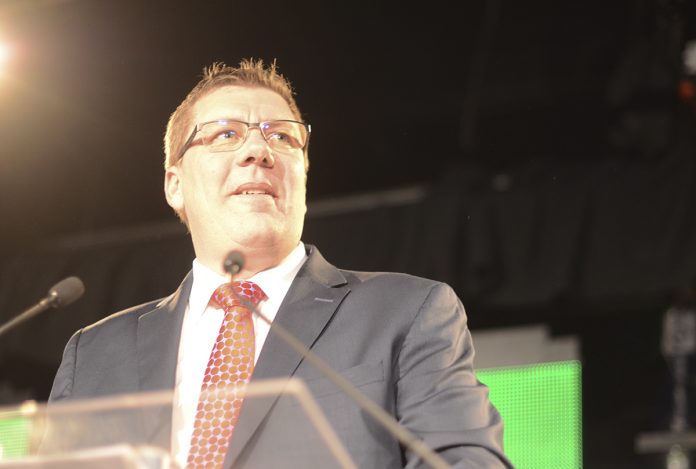
While other provinces could be reaching out to the federal government for help managing COVID-19 outbreaks in long-term care homes, Saskatchewan Premier Scott Moe would like to see a different form of relief for his province.
Moe was set to meet digitally with other premiers and the Prime Minister shortly after speaking to reporters Thursday. He said other areas of help provinces will be looking at include contact tracing and testing capacity.
But Saskatchewan has another need, the premier said, and that’s help for the energy sector.
“The conversation from all provinces is there (needs) to be some pandemic funding … for various issues. The issues are different from province to province and territory,” Moe said.
He argued that the government’s previous plan, which included both loans for large corporations and a well cleanup initiative, was ineffective.
“The federal government has come forward with a suite of programs — some have been timely, effective and appreciated, others have been timely, less effective and won’t be discussed a whole bunch … as they don’t address what they set out to address.”
Most evident was the ask for liquidity for larger businesses and the energy industry.
That, “for all intents and purposes, missed the mark,” Moe said. He added, though, that the intention to help out was there.
The other issue Moe expects to come up is paid sick leave.
The federal government is floating the idea of implementing 10 days of paid sick leave for workers across Canada. The measure was proposed by the NDP.
It’s speculated the Liberals are considering the measure in exchange for voting support for one of their initiatives.
As they’re a minority government, the Liberals need support from other parties to pass legislation.
Moe said that if the proposal does move forward, it can’t cost more for businesses or provincial governments.
“Businesses have borne quite a bit of expense over the past months,” Moe said, adding that they also should be protected from increased EI costs as a result of the proposal.
He also argued it should be a measure implemented for the pandemic alone, and expire after a period of time. He views the discussion as one best dealt with through collective bargaining, not legislation.
“If there is something that is COVID-specific, it should not be distorting the marketplace,” he said.
He also requested that if it is a federal initiative, it be paid for and implemented by the federal government.
“Too often we’ve seen these initiatives come out without federal or territorial consultation,” he said.
“Albeit, that is getting better. If this is a federal initiative, it needs to be funded federally as well.”
Estimating true cost of pandemic difficult, Moe says
Saskatchewan residents can get a sense of what the pandemic has cost the province when the budget is presented on June 15, Moe told reporters Thursday.
Costs have been something his government has been looking at. He declined to elaborate further.
“It is very challenging to actually ascertain what that cost is. The province itself will come out with our best estimates on budget day.”
Moe said Saskatchewan has mostly been able to operate within the expense side of its budget, but the revenue side is going to be “tremendously” challenging.
Indirect costs, though, will be harder to determine.
“The indirect costs will be much larger, much broader … those will be costs to the economy, in a large part … borne by business owners across this province.”
Moe added that there will be ongoing health care costs as the province tries to ramp up its services back to what’s expected and work through a backlog.
“The costs are multi-pronged,” he said.
“I don’t know if they are going to be accurately reflected in the short term. I think they are going to drag out over a number of months and quite likely, years.”
While Moe didn’t give a number as to what those costs look like so far, the City of Prince Albert did.
Accumulated net losses are projected to top $750,000. Losses from March-June are estimated at $164,014.

